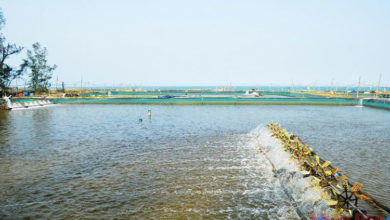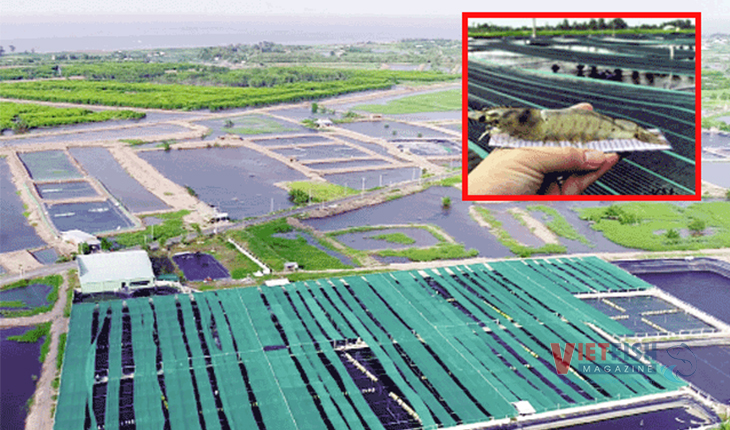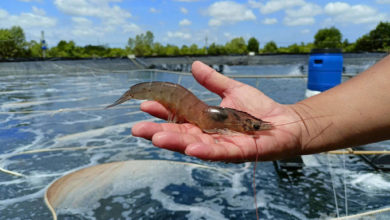Vietnam seeks solution for sustainable aquaculture development
The 2023 International Aquaculture Conference, with the theme “Overcoming crises, achieving prosperity,” organized by Aquaculture VietNam 2023 in collaboration with the Vietnam Fisheries Society and the Vietnam Aquaculture Association, highlighted the urgent need for the aquaculture industry to reduce the use of animal protein and antibiotics to move towards sustainable development.
In 2022, Vietnam’s seafood exports reached $11 billion. However, by the fourth quarter of 2022, the global economic downturn and climate change had placed the Vietnamese aquaculture sector in a state of crisis.
According to Arjen Roem, Marketing Director at Nutreco Asia, antibiotics pose one of the biggest threats to global food security, health, and development. Antibiotics are particularly hazardous to the health of fish and shrimp. Statistics show that the residual antibiotics in seafood products going to the EU account for 28% and 20% for imports into the United States, leading to these countries refusing to import such products. Therefore, responsible antibiotic use and antibiotic-free aquaculture practices are essential.
One of the challenges that the Vietnamese aquaculture industry is facing, particularly the shrimp sector, is the intense price competition with exporting countries such as Ecuador, India, and Thailand. Dr. Trần Hữu Lộc,, an expert in shrimp farming and a lecturer at Ho Chi Minh City University of Agriculture and Forestry, notes that the total cost (feed, care, labor, etc.) for 1 kg of shrimp in Ecuador is only about $2, in India approximately $2.5, while in Vietnam, it costs around $3.35. This price difference inadvertently leads to higher prices for Vietnamese shrimp compared to other countries.
Dr. Lộc suggests the need for technology and techniques to reduce costs and enhance the competitiveness of Vietnamese shrimp in terms of price, particularly when compared to Ecuador.
He also emphasizes the importance of improving shrimp quality by completely eliminating the use of antibiotics to meet export standards.
Phạm Bảo Đăng, Project Manager at Rynan Smart Aquaculture (Trà Vinh), provides an insights that so as to produce 1 ton of commercial white leg shrimps, Vietnam needs substantial resources, including 5.59 ha of land, 45,500 m³ of water, 24,863 kWh of energy, and as a result over 13 tons of greenhouse gas CO2 will be released. In contrast, to produce 1 ton of the same shrimp in Ecuador, it requires 1.96 ha of land, 76,800 m³ of water, and 15,559 kWh of energy. India needs 3.45 ha of land, 39,200 m³ of water, and 25,000 kWh of energy. Therefore, achieving net-zero emissions by 2050 upon the Government’s goal poses a significant challenge to the aquaculture industry.
In the face of the situation, Rynan Smart Aquaculture has introduced a zero-emission, sustainable shrimp farming model in Trà Vinh province. Key components of this model include preserving and replanting mangrove forests, prioritizing the use of renewable energy, efficient resource utilization, and the integration of shrimp farming with other species for biodiversity and resource efficiency. Additionally, digital technology and information communication should be utilized to enhance efficiency and create added value.
Simon Sanguin, Global R&D Leader at De Heus – Aqua, points out that Vietnam has advantages in trade agreements like the EVFTA, which eliminates many tariffs in agriculture and aquaculture sectors. However, European markets have strict requirements for traceability, food safety, and sanitary regulations. Thus, compliance with these rules is crucial to accessing these markets.
Furthermore, ensuring sustainability and reducing CO2 emissions is of paramount importance. Sanguin suggests that feed producers explore sustainable nutrition solutions by using small peptide components, free amino acids, alternative animal proteins, insect meal, fungal protein, and algal oil.
VFM






